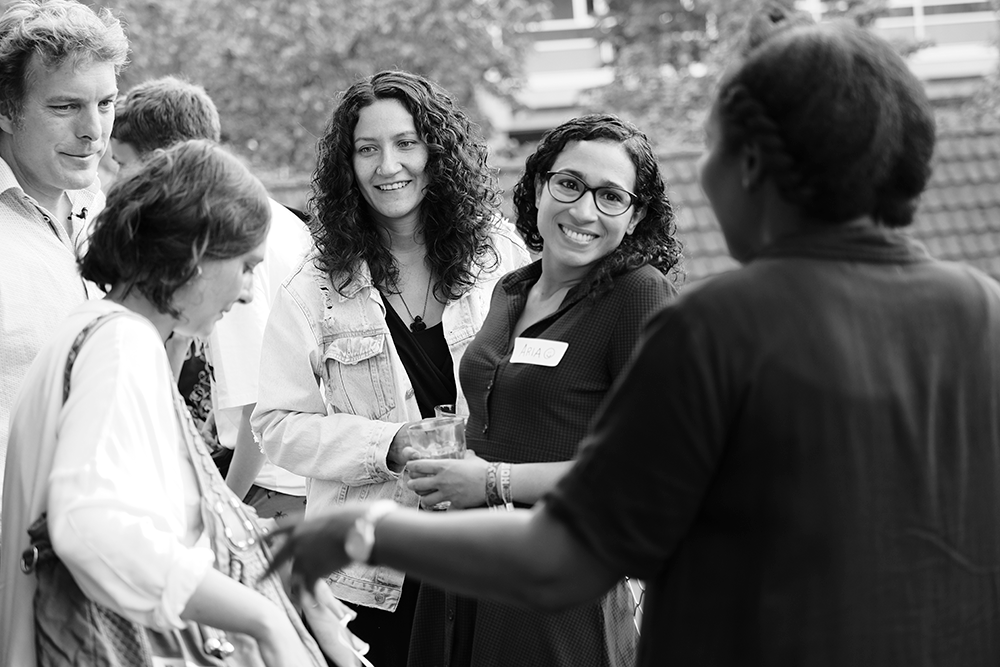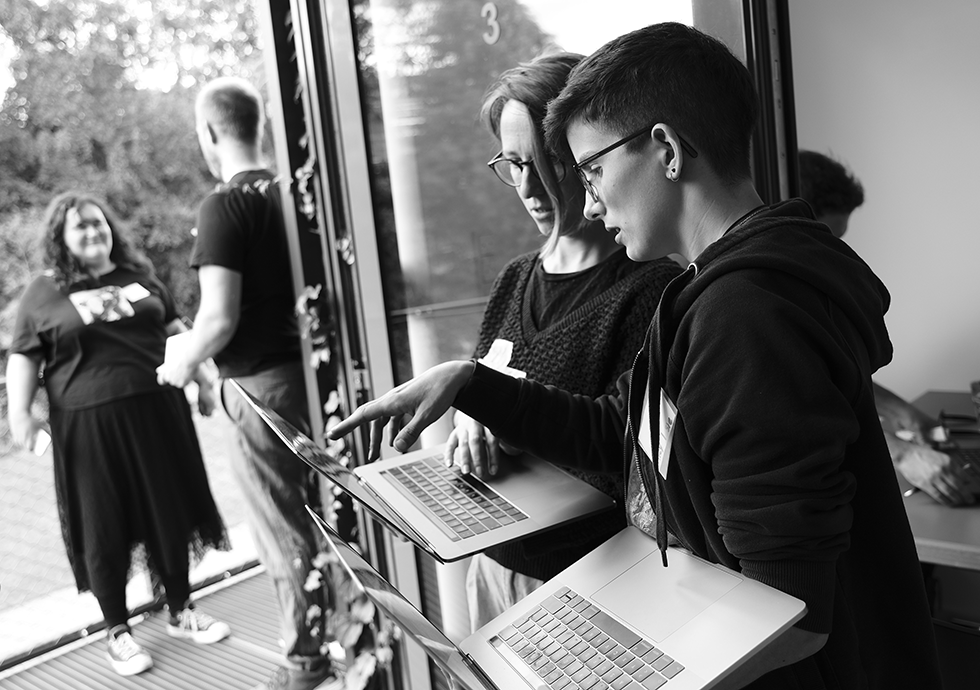Hackathon: Diversity Data
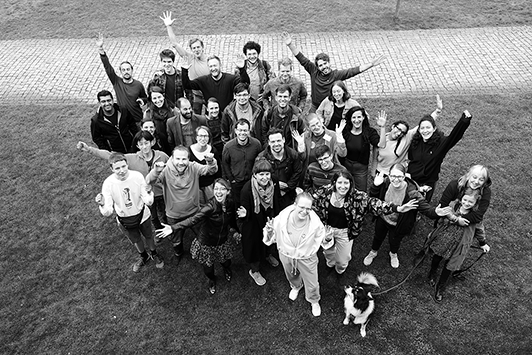
Hackathon: Diversity Data
Towards an infrastructure to boost our capacities to collect, analyze and report on equality data.
Citizens For Europe (CFE) and CorrelAid have partnered up to conduct a survey among CorrelAid community members on the topic of (non-)volunteering and (anti-)discrimination. To kick off the technical tracks of the collaboration, CFE and CorrelAid co-organized a hackathon, the first for us at CFE. From 9th to 11th September 2022, about 35 CorrelAid volunteers - data scientists, data engineers, developers and data4good activists - joined us in Berlin Wedding to support our team to build the technical infrastructure and data pipeline for the collection, analysis, and reporting of equality data.
On Friday the participants could listen to two inspirational keynotes and two technical talks. “Statistics are known for revealing truths in aggregate that, at an individual level, can be misrepresentations or lies. How do we use data as a looking-glass for human reality, working with labels, profiles, and tools for generalization?”, presented Dr. Nakeema Stefflbauer, the founder and managing director of FrauenLoop, during her keynote "Bringing Your Whole Self to Data Work".
Joshua Kwesi Aikins from our team spoke about conscientization, empowerment and advocacy through community-based data interventions, using Afrozensus 2020 as a Showcase.
Ellen König, lead data engineer, talked about “The two main challenges in building data pipelines”: figuring out what kind of data pipeline you need and implementing your transformations in a way that ensures you don't accidentally distort your data.
Elif Schaefer, head of business intelligence, informed the participants about “Dashboard design process & Gestalt theory of visual perception”. “By taking Gestalt principles and some simple guidelines into consideration while designing your dashboards, you can be more mindful about the cognitive load and can deliver a clear message to your audience through a story!”
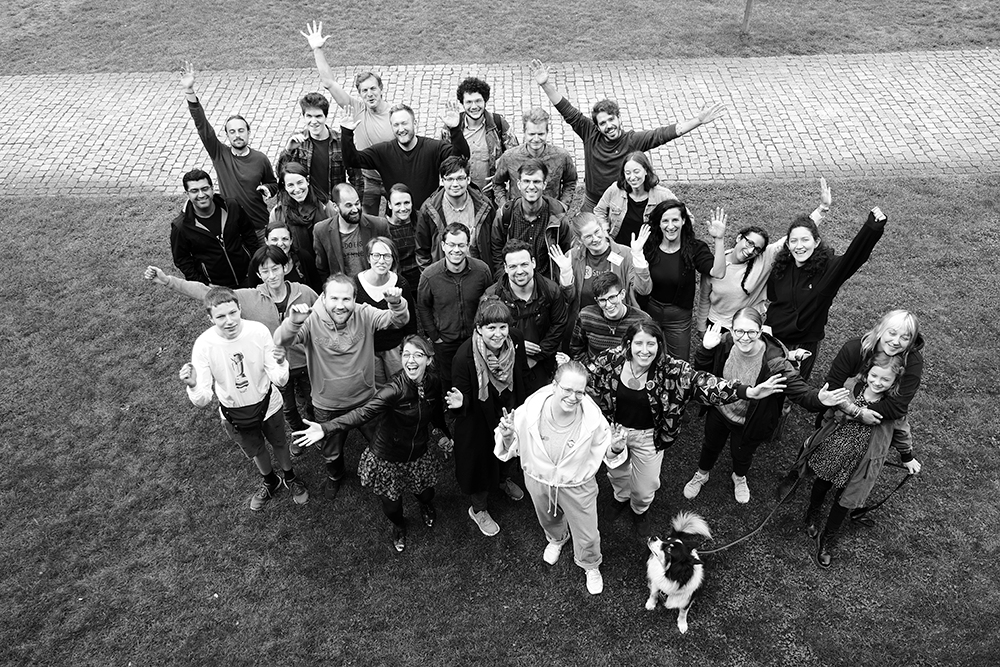
#Tech4good: the magic of collective intelligence
On Saturday morning, our colleagues from the Tech team Lisa Reiber and Ilja Sperling presented 16 research and development challenges to the participants. The challenges were thematically grouped in three tracks around the topics
1. data extraction & transformation pipeline (how to get and clean data),
2. exploratory data analysis (EDA) (How to learn about the content of the data), and
3. reporting and visualisation (How to present the results to researchers).
After the Hackathon participants found their challenge for the weekend, the remaining day was spend tackling the challenges, researching, exchanging ideas, getting feedback from the coach experts, documenting the research progress (dead ends included), and here and there, implementing concrete solutions.
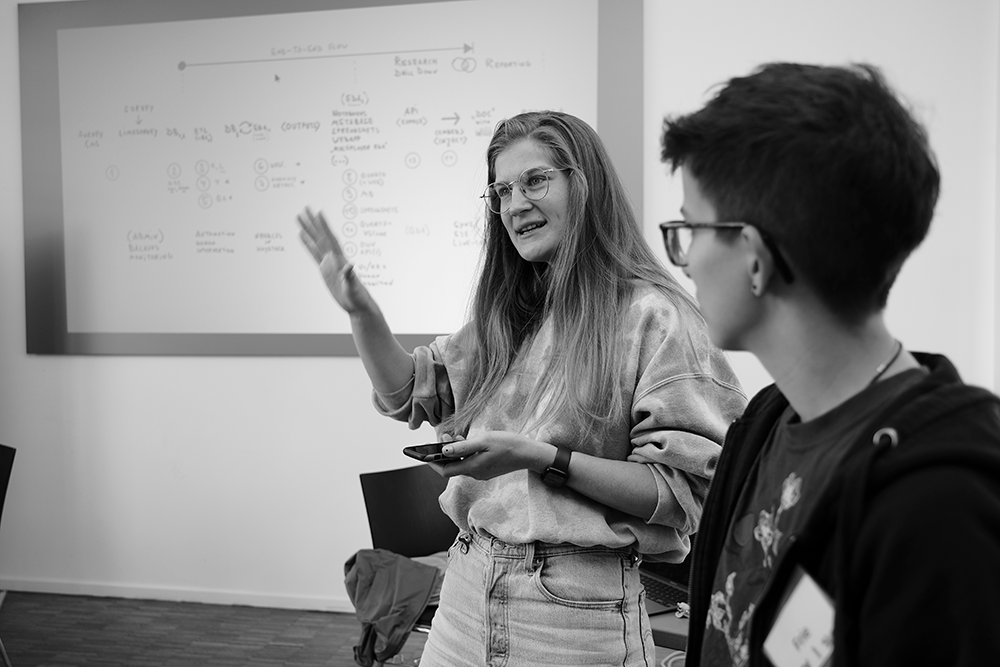
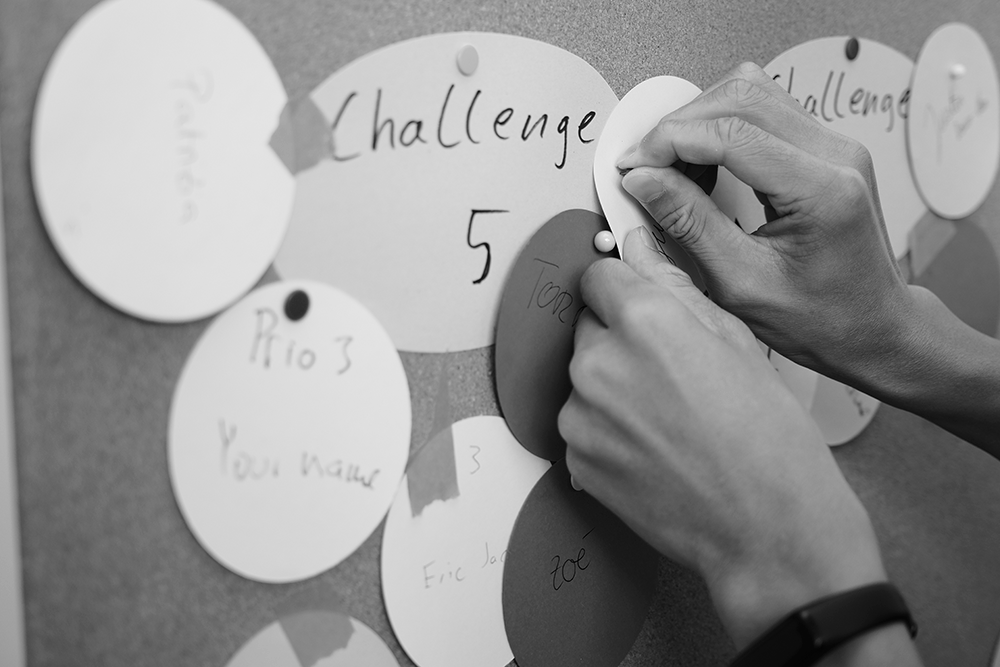
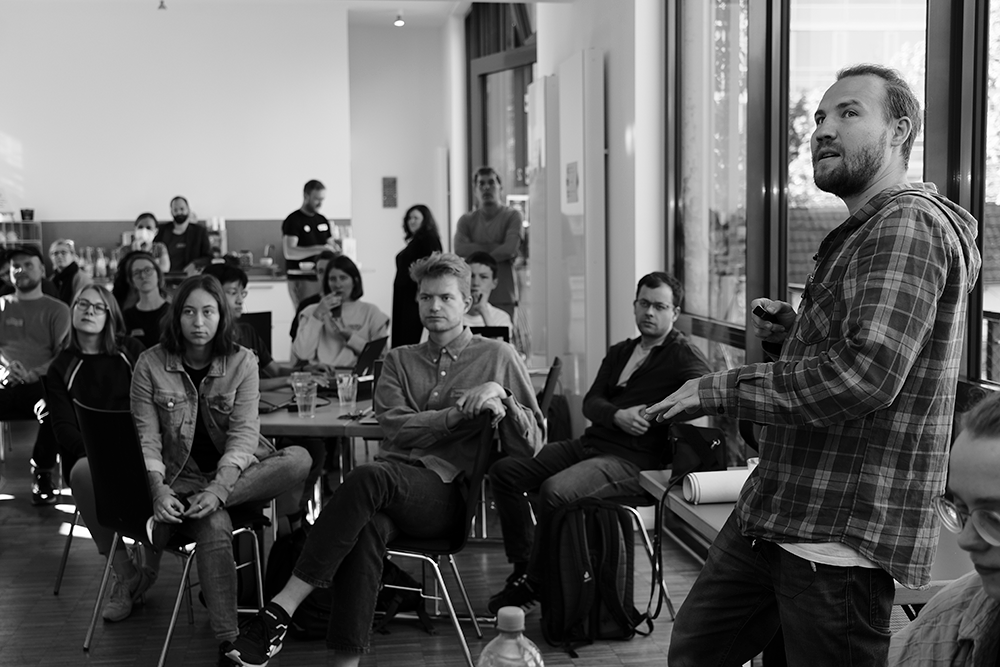
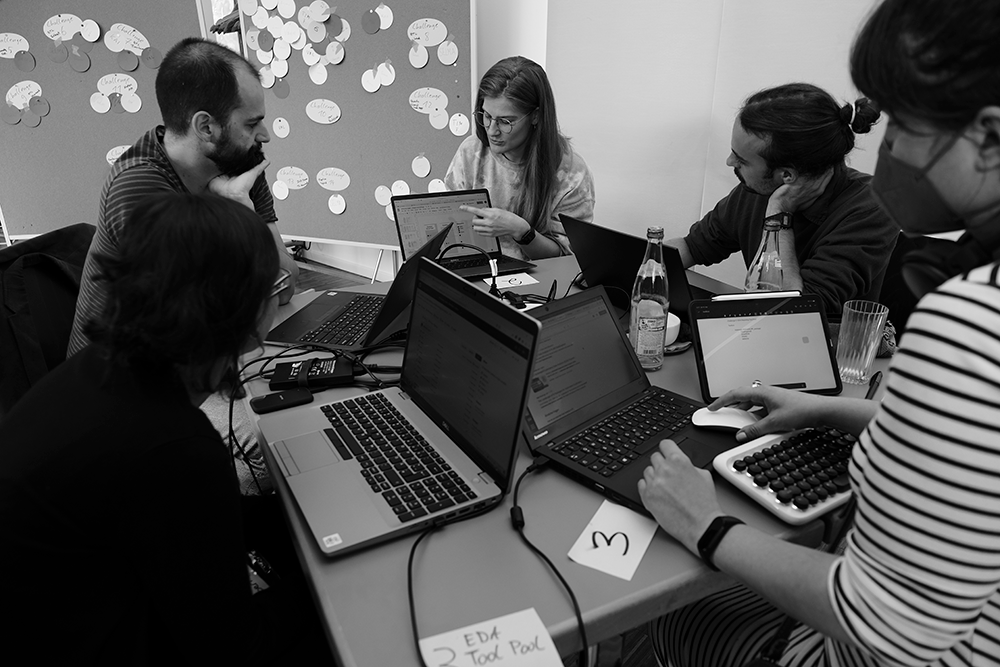
On Sunday the groups presented the approaches they took and the solutions they developed to all other participants and the CFE team members. Overall it was a great experience to witness all the creative processes that had happened during the week-end. The participants did an awesome job to support the CFE team with the broad research and development tasks as well as more specific prototyping work which is paving the way for the next project phase: multiple months of focused work on the problems that are now a lot better understood than before the Hackathon.
